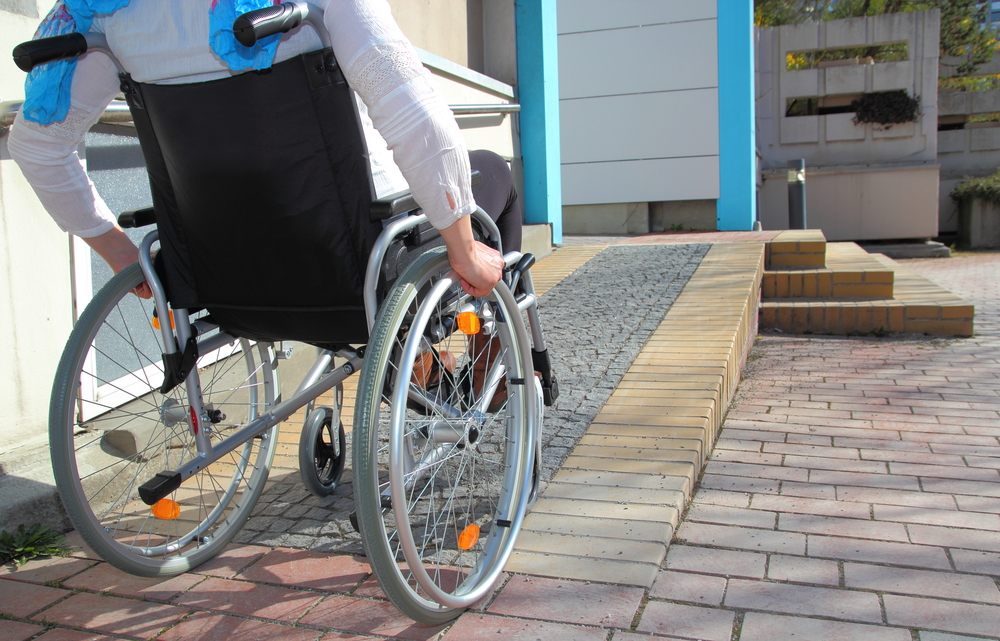
Temporary Events ADA Compliance
ADA compliance for temporary events is just as important as ADA compliance for public areas and private businesses. The Americans with Disabilities Act (ADA) prevents discrimination towards individuals with vision loss, hearing issues, and other disabilities. When it comes to accessibility, the ADA outlines certain standards to ensure that public areas, even temporary events, are accessible to people with impairments.
Legally, all public events are required to comply with the ADA regulations. This means that the event location, vendors, parking, general information, performance areas, exhibits, and restroom facilities are made accessible to everyone.
A good rule of thumb for making your temporary event ADA compliant is to go above and beyond the ADA regulations to ensure everyone can relax and enjoy your event.
1. Training
Provide training for staff and volunteers on how to properly accommodate people who have visible challenges. Also, take the time to inform the staff and volunteers on what resources are available to offer to attendees with impairments. The bottom line is that everyone in attendance should be treated like any other attendee, which means respectfully offering assistance but not being overbearing.
2. Vendors
Supply the vendors of the temporary event with information on how to be ADA compliant. For vendors, ADA compliance means that all attendees must have equal access to the vendor’s wares. Therefore, vendors cannot be placed in an area that could be inaccessible to someone in a wheelchair. Moreover, vendors should know how to provide additional assistance to any attendee who may request an accommodation.
3. Marketing
Tell people that your event will be accessible! Many people with disabilities just assume that most events won’t accommodate their needs. Include statements about the accessibility of your event in press releases and publicity materials. Check in with local groups and organizations that work with people who have disabilities to be sure that news about your event is received.
4. Accessible Parking
Use signs to direct attendees with disabilities to parking spots that will cater to their needs or designate an area for drop off zones. Be sure that curb ramps are available at the venue—you can even rent portable curb ramps if needed. For every 25 parking spots, your event must have 1 accessible parking spot that is set near to an accessible entrance. Also, out of 6 accessible parking spots, 1 spot must be wide enough to accommodate a van. Consider your audience and whether or not it is likely that people will be arriving in vans.
5. Event Navigation
Men and women with assistive devices such as walkers, wheelchairs, or canes need a pathway that is flat and easy to navigate while providing access to all event activities and amenities. It’s best if this is the same route that everyone uses. The ADA standards for accessible pathways and ramps are 36 inches wide while standards for doorways are 32 inches wide. For ramps, there should be a one-inch vertical grade for every 12 inches of distance. All hazards such as cords, cables, and hoses should be covered and easy to navigate over for people with assistive devices.
6. Accessible Bathrooms
For any event, accessible bathrooms are imperative, providing a 32-inch-wide entrance and a five-foot diameter within the stall to allow a full range of mobility. Every bathroom should have one accessible stall. For a portable bathroom, the unit needs to be marked with the International Symbol of Accessibility and be set on a level area connected to the main accessible path. If a ramp is used, it should level off before the door for ease of access.
7. Assistive Listening Devices
If your temporary event includes a speaker or a band, you may need to provide assistive listening systems to attendees who may have hearing loss. Each device picks up the audio feed directly from the source and allows the wearer of the device to adjust their own volume. Set up a booth for the listening devices so that attendees can easily sign them out.
ADA compliant temporary events help create a world that is focused on accessibility. Not only does ADA compliance mean that your event meets legal standards, but it also helps to show people with varying abilities that they are a valuable part of our society. At StrongGo, we want to see the world become accessible for all. That’s why we make quality dome-tiles to accommodate those with low or no vision. If you need help determining how to make your office building or parking lot more accessible, reach out to us today at CSD@stronggo.com.


